2017 年广西民族大学基础英语考研真题 A 卷
一、Grammar, Vocabulary and General Knowledge
Directions: Find the ONE choice that best completes the sentence(.每小题 1 分,
共 40 小题,
共 40 分)
1. Which of the following sentences is INCORRECT?
A. They have enough time to finish the paper.
B. Dad says the meat is not enough cooked.
C. You are not old enough to buy alcohol.
D. She plays well enough for a beginner.
2. In “She felt sick from tiredness”, the italicized word is used to indicate
3.
B. purpose. C. cause.
A. comparison.
Which of the following sentences has an object complement?
A. I will buy you a present.
B. Mom gave me a necklace.
C. I’m going to paint it pink. D. Tom is teaching children Japanese.
Smoking is so harmful to health that it kills ____ each year than automobile
D. direction.
4.
accidents.
A. more seven times people
C. more people seven times
Sorry I’m late. I ____ have turned off the alarm clock and gone back to sleep
B. seven times more people
D. people seven times more
5.
again.
B. leave
C. is leaving
D. are to leave
B. should
C. mustn’t D. couldn’t
A. might
Mr. White, together with all his colleagues, ____ for Europe this morning.
A. are leaving
The new designed bedroom seems to be a great deal larger than ____.
A. it is necessary
C. to be necessary
He was determined to sail around the world ____ his illness and old age.
A. given
Mr. White has become bad-tempered since he indulges in Gambling. He is no longer
B. being necessary
D. is necessary
B. although C. despite
D. in spite
6.
7.
8.
9.
the
man ____ used to be.
A. which
B. whom C. who
D. that
10. You ____ call your father’s name directly. It’s impolite in China.
A. oughtn’t
B. mustn’t C. needn’t D. wouldn’t
11. It is not ____ much his appearance I like as his personality.
A. as
B. very C. so
D. that
12. There is much chance ____ Bill will recover from his injury in time for the
race.
A. that B. which
C. until
D. if
13. They did the experiment ____ their chemistry teacher had instructed.
A. as
B. though
C. until
D. when
�
14. He was listening attentively in class, his eyes ____ on the blackboard.
A. fixing
B. fixed
C. are fixing
D. are fixed
15. I don’t think ____ possible to master a foreign language without much memory
work.
A. that B. this C. you
D. it
16. Mary was ____to tears by their criticism.
A. sunk B. reduced
C. forced
D. declined
17. The police fortunately gained the key clew according to the foot mark in the
____ of the road.
A. clay
18. These
of
the
people.
magnificent
laboring
B. dirt
____
buildings
C. mud
demonstrate
the
great
D. soil
intelligence
A. antique
B. ancient
C. primitive
D. remote
19. I don’t remember meeting him, but the name John Smith rings a bell. The underlined
part
means ____.
A. is omitted
familiar
B. is warned
C. is appearing
D.
is
20. These goods are ____ for export, though a few of them may be sold on the home
market.
A. essentially
B. completely
C. necessarily
D. remarkably
21. Food will ____ if the temperature in your freezer rises above 8℃.
A. decay
B. rot
C. spoil
D. corrupt
22. The small company isn’t ____ of handling an order that large.
A. able B. capable
C. competent
D. qualified
23. Sometimes it’s good to stop for a while to think about the past and ____ the
future.
A. contaminate
B. contemplate
C. consolidate
D. contradict
24. School fees, illness, house repairs and other ____ have reduced his bank balance
to almost nothing.
A. payment
B. amount
C. figures
D. expenses
25. Many people, including college students of all ages, spend little time in ____
of physical fitness.
A. search
B. view
C. light
D. pursuit
26. There’s no denying that as we age ____, our body ages right along with us.
A. chronologically
deliberately
B. significantly
C. deceptively
D.
27. We made an effort not to leave my friend out in the cold when we were planning
the birthday party. The underlined part means ____.
A. embarrass
B. humiliate
C. ignore
D. exhaust
28. The company has to make its accounts and operations as ____ as possible.
A. distinct
transparent
B. evident
C. explicit
D.
�
29. His ability to absorb information was astonishing, but his concentration ____
was short.
B. interval C. span D. distance
A. gap
30. She is generally ____ as one of the best modern poets.
A. classed
B. graded
C. ranked
D. rated
31. ____ is generally regarded as the beginning of modern world history.
A. The Glorious Revolution
C. The Renaissance
B. The English Reformation
D. The English Civil War
32. In the US, the largest city along the Pacific Coast is ____
B. Los Angeles. C. Seattle. D. Chicago.
A. San Francisco
33. In Faulkner’s The Sound and the Fury, he used the technique of ____, in which
the whole
story was told through the thoughts of a character.
A. imagism
C. naturalism
B. stream of consciousness
D. symbolism
34. Percy Bysshe Shelley did not write ____
A. Song of Myself.
C. Ode to the West Wind.
B. Prometheus Unbound.
D. Queen Mab.
35. ____ is not a modernist novelist of Britain.
A. James Joyce
B. Virginia Woolf
C. D.H.Lawrence D. Henry James
____ is the manifestation of grammatical relationships through the addition of
affixes, such as number, person, finiteness, aspect and case, which don’t change
the grammatical class of the stems to which they are attached.
A. Word formation
B. Inflection
C. Compound D. Derivation
37. One way to analyze lexical meaning is
A. predication analysis.
C. componential analysis.
B. stylistic analysis.
D. proposition analysis.
38. ____ is NOT the characteristic of conversational implicature.
A. Calculability
C. Detachability
B. Cancellability
D. Non-conventionality
39. A sound pronounced with the vocal cords vibrating is said to be ____ sound.
A. voiceless
B. voiced
C. consonant
D. resonant
40. Which function is the major role of language?
A. Informative. B. Interpersonal.
C. Performative.
D. Emotive.
二、Cloze
Directions: There are 20 blanks in the following passage. For each blank there
are four choices marked [A],[B],[C] and [D] .You should choose the ONE that
best fits into the passage.(每小题 1 分,共 20 小题,共 20 分)
According to BT's futurologist, Ian Pearson, these are among the developments
scheduled for the first few decades of the new millennium (a period of 1, 000 years),
when supercomputers will dramatically accelerate progress in all areas of life.
Pearson has __1__ together to work of hundreds of researchers around the world
to produce a __2__ millennium technology calendar that gives the latest dates when
�
we can expect hundreds of key __3__ and discoveries to take place. Some of the biggest
developments will be in medicine, including an __4__ life expectancy and dozens
of artificial organs __5__ into use between now and 2040.
Pearson also __6__ a breakthrough in computer human links. “By linking __7__
to our nervous system, computers could pick up __8__ we feel and, hopefully, simulate
__9__ too so that we can start to __10__ full sensory environments, rather like
the holidays in Total Recall or the Star Trek holodeck,” he says.
But that, Pearson points __11__, is only the start of man-machine __12__: “It
will be the beginning of the long process of integration that will __13__ lead to
a fully electronic human before the end of the next century.” __14__ his research,
Pearson is able to put dates to most of the breakthroughs that can be predicted.
However, there are still no __15__ for when faster-than-light travel will be __16__,
or when human cloning will be perfected, or when time travel will be possible.
[C] subtle
[D] unique
[B] findings
[C] events
[B] extended
[C] enlarged
[B] pieced
[C] kept
[D] made
[C] carrying
[C] predicts
[D] incidents
[D] enriched
[B] becoming
[B] plans
[B] instantly
[B] how [C] what
[A] taken
[A] complicated [B] delicate
[A] breakthroughs
[A] expanded
[A] being
[A] schedules
[A] directly
[A] that
[A] thinking
But he does __17__ social problems as a result of technological advances. A boom
in neighborhood surveillance cameras will, for example, __18__ problems in 2010,
while the arrival of synthetic __19__ robots will mean people may not be able to
__20__ between their human friends and the droids. And home appliances will also
become so smart that controlling and operating them will result in the breakout
of a new psychological disorder-kitchen rage.
1.
2.
3.
4.
5.
6.
7.
8.
9.
10. [A] form
11. [A] out [B] at
12. [A] program [B] production
13. [A] finally [B] ultimately
14. [A] Through [B] Though
15. [A] forecasts
16. [A] advisable
17. [A] solve
18. [A] confront
19. [A] lovely
20. [A] distinguish [B] differ
[C] experiment
[C] utterly [D] absolutely
[D] integration
[C] stories [D] meetings
[C] available
[D] valuable
[B] articles
[B] affordable
[C] precisely
[D] all
[D] coming
[D] designs
[B] hearing [C] sight
[D] feeling
[B] likely
[C] lifelike
[B] cause
[C] witness [D] collect
[B] develop [C] find
[D] undertake
[C] diagnose
[D] deviate
[B] arose
[C] exercise
[D] expect
[D] lively
[D] automatically
[C] to
[D] toward
[C] During
[D] By
三、Reading Comprehension (选择题每小题 1 分,共 10 小题;填空题每小题 1 分,
共 8 小题;简答题每小题 2 分,共 11 小题;共 40 分)
PASSAGE ONE
�
The Work-Life Balance
This month the TUC is campaigning against, what it calls, Britain's "long hours
culture". But do the British actually work too long? And if we do, is it doing us,
or society at large, any harm?
Over the past 150 years working hours across the developed world have been
falling. In the mid-nineteenth century men in Britain, in paid employment, worked
for at least 55 hours per week. Hours worked then began a steady drop -- the rise
of trade unionism is one explanation, but then, after the First World War they
plateaued. From 1951 onwards they dropped again but this fall was brought to a sudden
halt in 1981 with the onset of the deregulatory economic policies of the Thatcher
years. Working hours reached a high in 1997 when the UK average number of hours
worked hit 45.8 per week, falling to 44.3 hours per week in 2004.
The main reason for this recent decline has been the impact of EU's Working
Time Directive which stipulated that no one could work more than 48 hours in a week,
unless special exemption had been jointly applied for by both employers and
employees. Nonetheless, in European terms, we are still doing badly in terms of
hours worked -- British workers are at the top, or bottom, of the hours charts,
depending on your point of view. In 2004 British workers put in almost two and a
half hours more per week than the average European worker -- although that was an
improvement on 2001 when the gap was three and a quarter hours.
In terms of actual hours worked, for those fortunate enough to be living and
working in the Netherlands the average was just 38.8 hours a week, whilst for those
unfortunate enough to be working in Britain, the average was 43.5 hours. Workers
in our closest European competitors, France and Germany, worked 38.9 hours and 39.6
hours per week respectively. And yet, according to research both French and German
workers are around 20% more productive than their British counterparts. And we do
equally badly when it comes to holidays. The European average for annual paid leave
is 26.5 days per year -- again the UK is near the bottom of the league with an average
of 24.5 days of annual leave.
However, these raw figures don't tell the whole story. During the 1980s and
1990s it was fashionable to predict that the "revolution in work" had begun.
Business gurus were forecasting that the then current work norm, in which the
majority of the workforce were in full-time employment at places of work away from
home would give way to the majority having portfolios of part-time, temporary jobs,
with many working either from home or from mobile office environments. This would
result in a blurring between work and home, leisure, and employment -- thus concerns
about hours worked would become little more than of historical interest.
This view is backed up by Michael Moynagh in Working in the Twenty-First Century.
After examining trends in working time over the past twenty years, and casting their
findings forward, they conclude: "On balance it is likely that contracted working
�
time will continue to drop, if slowly and intermittently".
According to the research project "The Future of Work" led by Professor Peter
Nolan of Leeds University, the notion that the nature of work is changing radically
is systematically demolished.
Based on a nationwide survey of employees Professor Nolan reports that the project
found that, contrary to this conventional wisdom, the "end of work" scenario had
not come to pass. In fact the 1990s had seen a growth, not a contraction, in the
proportion of employees in full-time permanent jobs. In 2000, 92% of workers were
in permanent work compared with 88% eight years earlier. And in 2000 only 5.5%
said they were working on a temporary contract, compared with 7.2% in 1992. "Such
startling figures do not suggest Britain is rapidly developing a more flexible
labour market when measured by the extent of employment stability. Indeed, the
permanent job remains very much the overwhelming norm and this is true across every
occupational category."
Nor was the notion of "going to work" in decline. The researchers found that
most people still leave their homes for paid employment, only 3% of employees said
they worked partly at home and a further 1.1% said they worked solely or mainly
at home.
Thus, arguments about working time are still very central to debates about
the nature of the work experience. The Future of Work survey found that
dissatisfaction with the hours that people were having to work had increased
dramatically. In 1992 35% of men were satisfied with their hours, by 2000 this
had fallen to 20%; the decline among women employees was even sharper, down from
51% in 1992 to 29% in 2000. And this decline was, in terms of social class, across
the board.
Professor Jonathan Gershuny is an expert on the work-life balance. He paid
particular attention, not just to paid work but to two related issues -- women's
unpaid work and leisure time. Gershuny notes how leisure time itself has become
increasingly congested as people have less and less time to "consume" more and
more leisure. He quotes from American sociologist Steffan Linder, who noted that
as part and parcel of their "success" the harried executive might buy themselves
a yacht; and yet the time they make available to enjoy their leisure activities
diminishes the more successful they become. Gershuny paints a picture of the
harried executive having to plan their leisure time almost as rigorously as they
plan their working day.
He also casts his eye over the unpaid work that is mainly done by women in the
home. He notes how, despite the spread of "labour-saving" devices, the time women
spend on domestic chores had not reduced, if anything it had gone up. This is because,
as domestic work has become easier so "standards" have risen -- rooms that were
�
swept once a week are now swept once a day and meals that were cooked simply to
be nourishing now had to be "interesting" as well. Gershuny reports that women on
average spend 45-hours a week on unpaid domestic work; but where they had a full-time
job this time went down to 22 hours a week. For men, his research showed that
irrespective of whether or not they were in full-time work they spent an
underwhelming 30 minutes a day on domestic chores. No doubt many of those same men
would privately applaud the sentiments expressed in a Japanese research report that
concluded: "Housewives by nature enjoy doing housework. For housewives, it is
difficult to distinguish between housework and leisure." Then again, perhaps not,
as times have moved on somewhat.
Questions 1-4
Choose the best answer.
1. Which statement best describes the change of British working hours?
A. Over the past 150 years, British working hours fluctuated by as long as 10
hours.
B. British workers worked 3 hours longer every week than their European
counterparts in 2001.
C. British workers worked longer than French and German workers with higher
productivity.
D. British workers have the least annual paid leave.
2. What does the sentence "thus concerns about hours worked would become little more
than of historical interest" imply?
A. Since there is no wild change in British working hours, the forecasting of
work norm lost meaning.
B. There is no point in concerning about working hours since it is hard to separate
employment and leisure.
C. The notion that the nature of work has changed is not right.
D. The end of work scenario makes research impossible.
3. What can we see from the research findings of Michael Moynagh and Peter Nolan?
A. They agreed that in the future, contracted working time will decrease.
B. They agreed that more British would like to work from mobile office
environments.
C. They have different conclusions and forecasts about British working time.
D. Both are against conventional wisdom that the end of work has come.
4. Professor Jonathan Gershuny notes that ______.
A. men take over most housework when women are in full-time work
B. people work harder in free time to consume what they produce in work time
C. if you are top managers, you have more leisure time available
D. women spend less time on domestic chores lately
Questions 5-9
Answer the following questions briefly by using NO MORE THAN TEN words.
�
5. What is the result of working from home or mobile office environments?
6. What are the percentages of people working partly at home and solely at home
respectively?
7. What is the dominant working norm?
8. Which phrase expresses the meaning that both managers and manual workers complain
about the long hours culture?
9. What is one of the two issues that Professor Jonathan Gershuny paid special
attention to.
Questions 10-12
Complete the following sentences with NO MORE THAN THREE words.
10. According
survey,
Work
of
to
the
______________________
dissatisfied with their working hours.
Future
women
are
11. The more successful people are, the _____________________ time they have to
enjoy themselves.
12. The appearance of _____________________ actually increased time of doing
domestic chores.
PASSAGE TWO
Already penitent for his angry action, but too stubborn to make amends, Mason toiled
on at the head of the cavalcade, little dreaming that danger hovered in the air.
The timber clustered thick in the sheltered bottom, and through this they threaded
their way. Fifty feet or more from the trail towered a lofty pine. For generations
it had stood there, and for generations destiny had had this one end in view--perhaps
the same had been decreed of Mason.
He stooped to fasten the loosened thong of his moccasin. The sleds came to a
halt, and the dogs lay down in the snow without a whimper. The stillness was weird;
not a breath rustled the frost-encrusted forest; the cold and silence of outer space
had chilled the heart and smote the trembling lips of nature. A sigh pulsed through
the air--they did not seem to actually hear it, but rather felt it, like the
premonition of movement in a motionless void. Then the great tree, burdened with
its weight of years and snow, played its last part in the tragedy of life. He heard
the warning crash and attempted to spring up but, almost erect, caught the blow
squarely on the shoulder.
The sudden danger, the quick death--how often had Malemute Kid faced it! The
pine needles were still quivering as he gave his commands and sprang into action.
Nor did the Indian girl faint or raise her voice in idle wailing, as might many
of her white sisters. At his order, she threw her weight on the end of a quickly
extemporized handspike, easing the pressure and listening to her husband's groans,
while Malemute Kid attacked the tree with his ax. The steel rang merrily as it bit
into the frozen trunk, each stroke being accompanied by a forced, audible
respiration, the 'Huh!' 'Huh!' of the woodsman. At last the Kid laid the pitiable
�
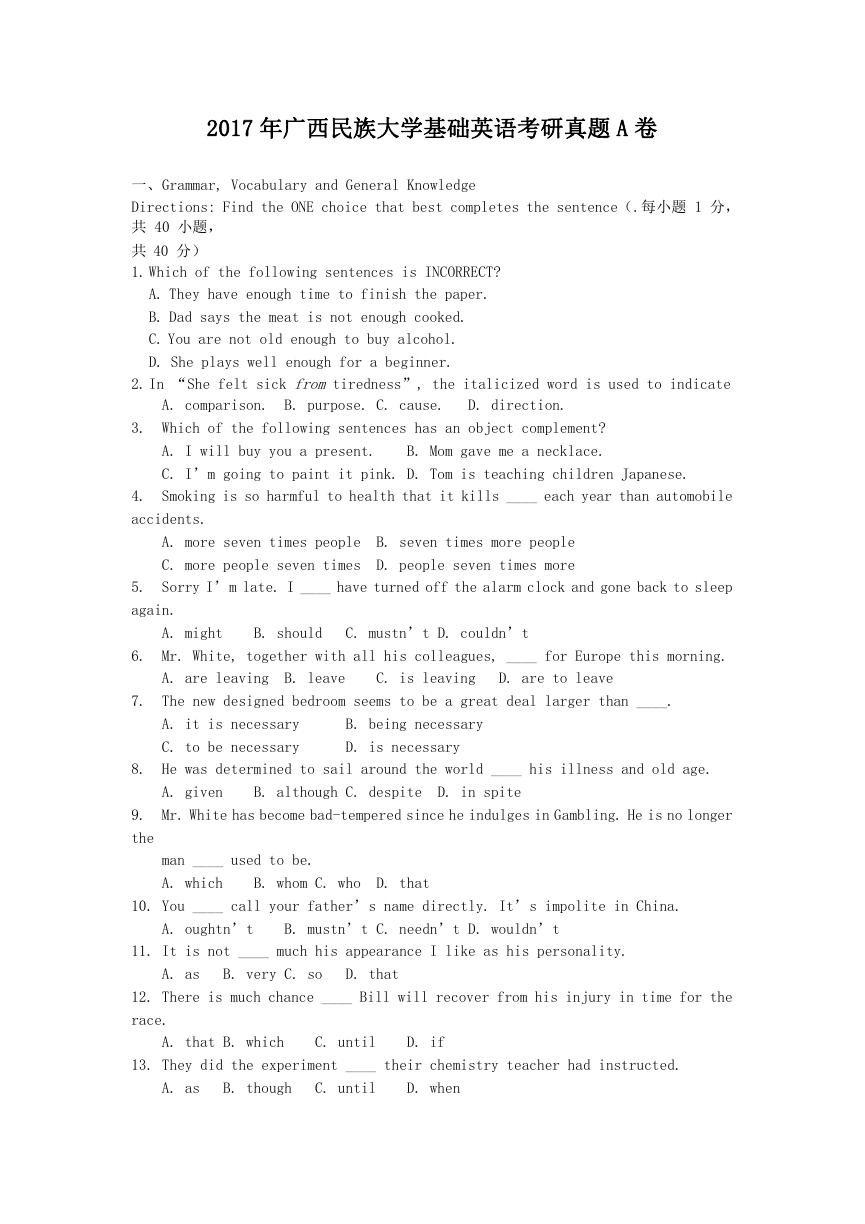
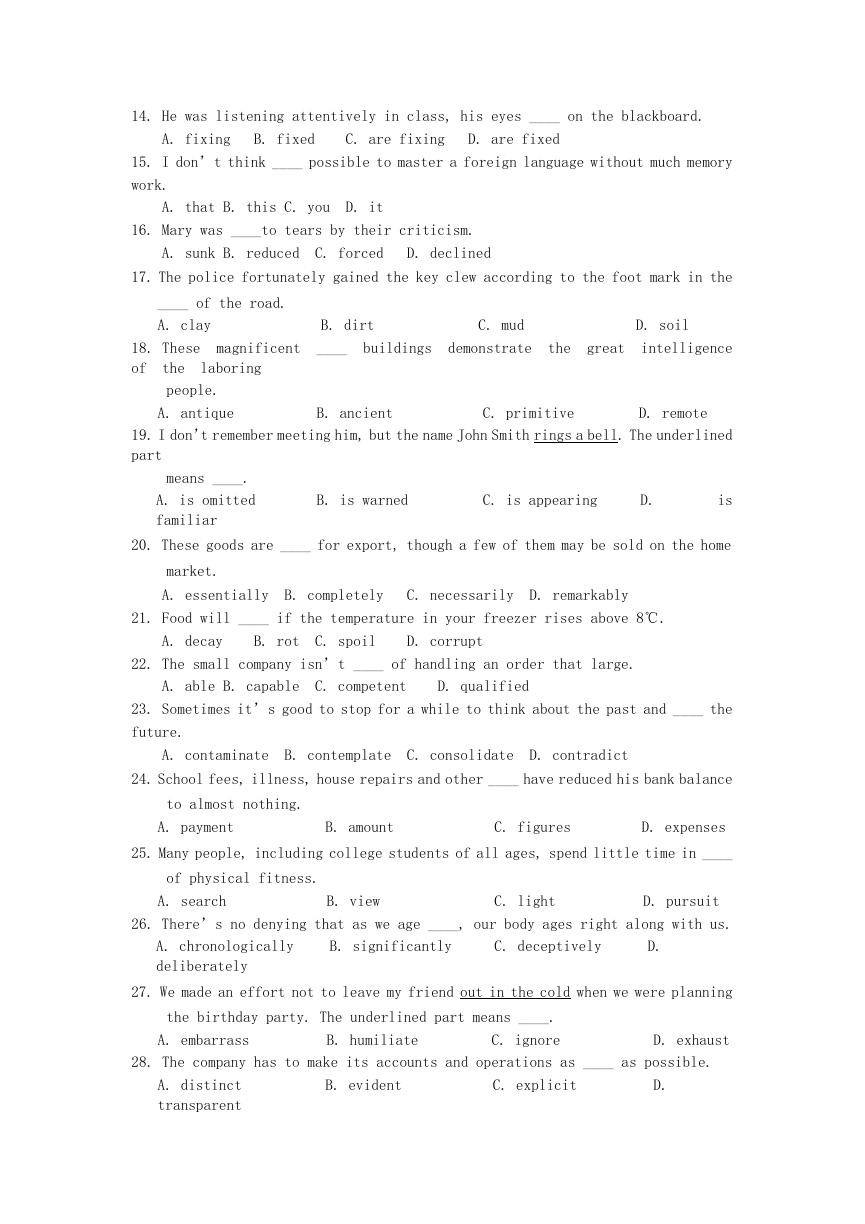
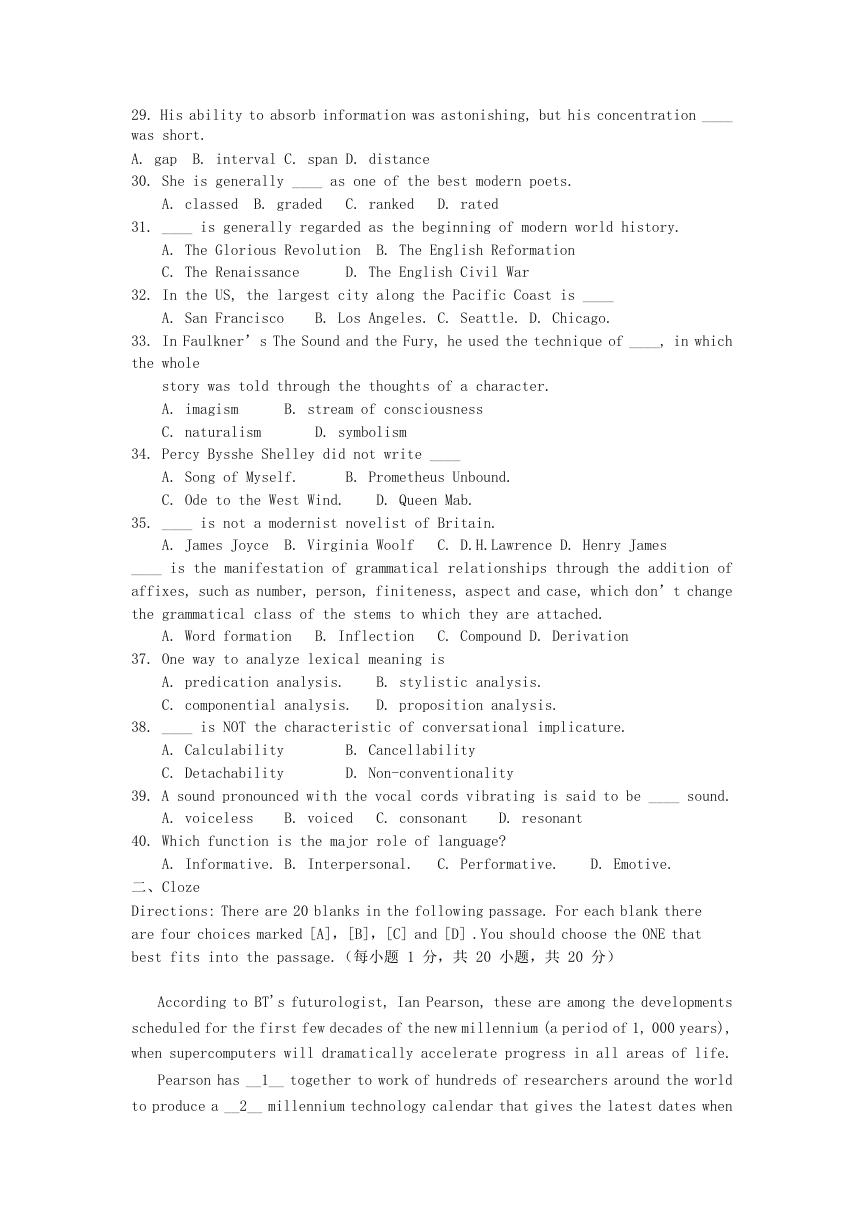
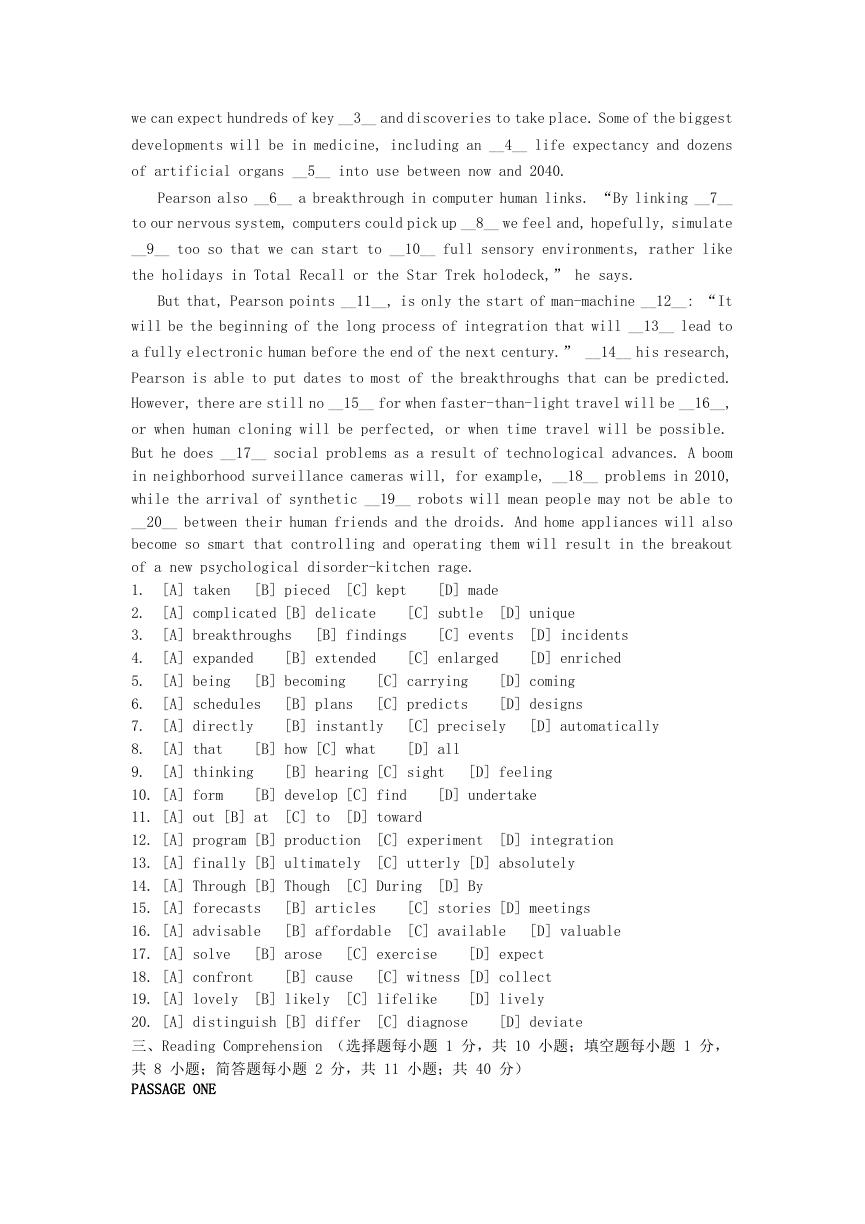
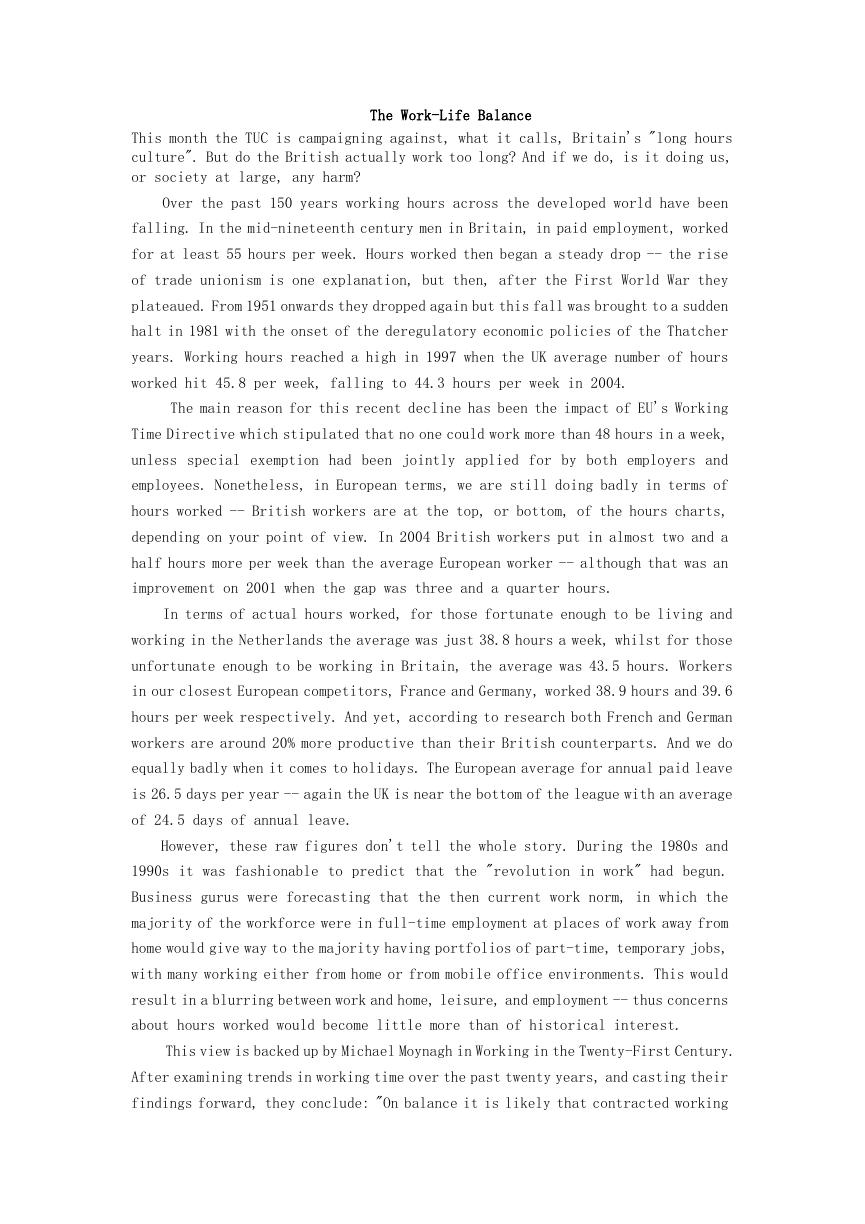
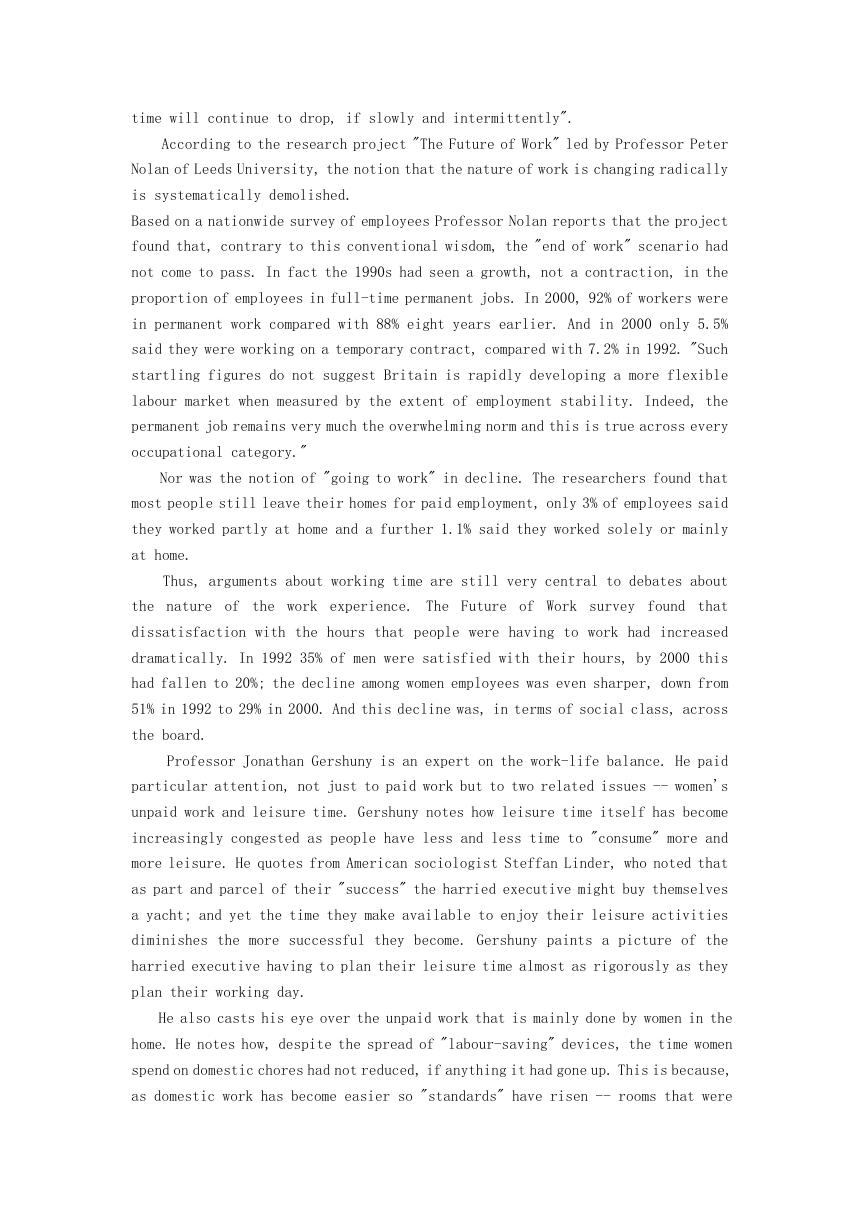
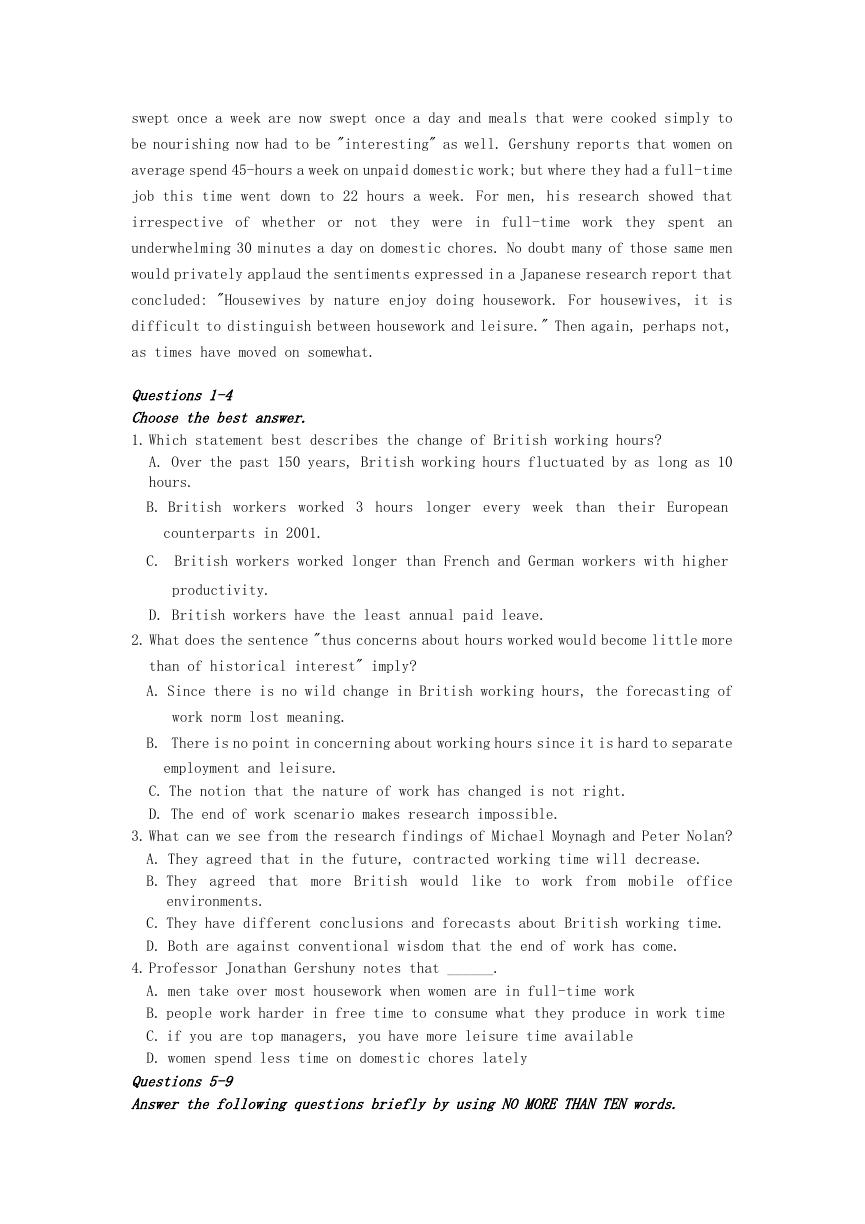
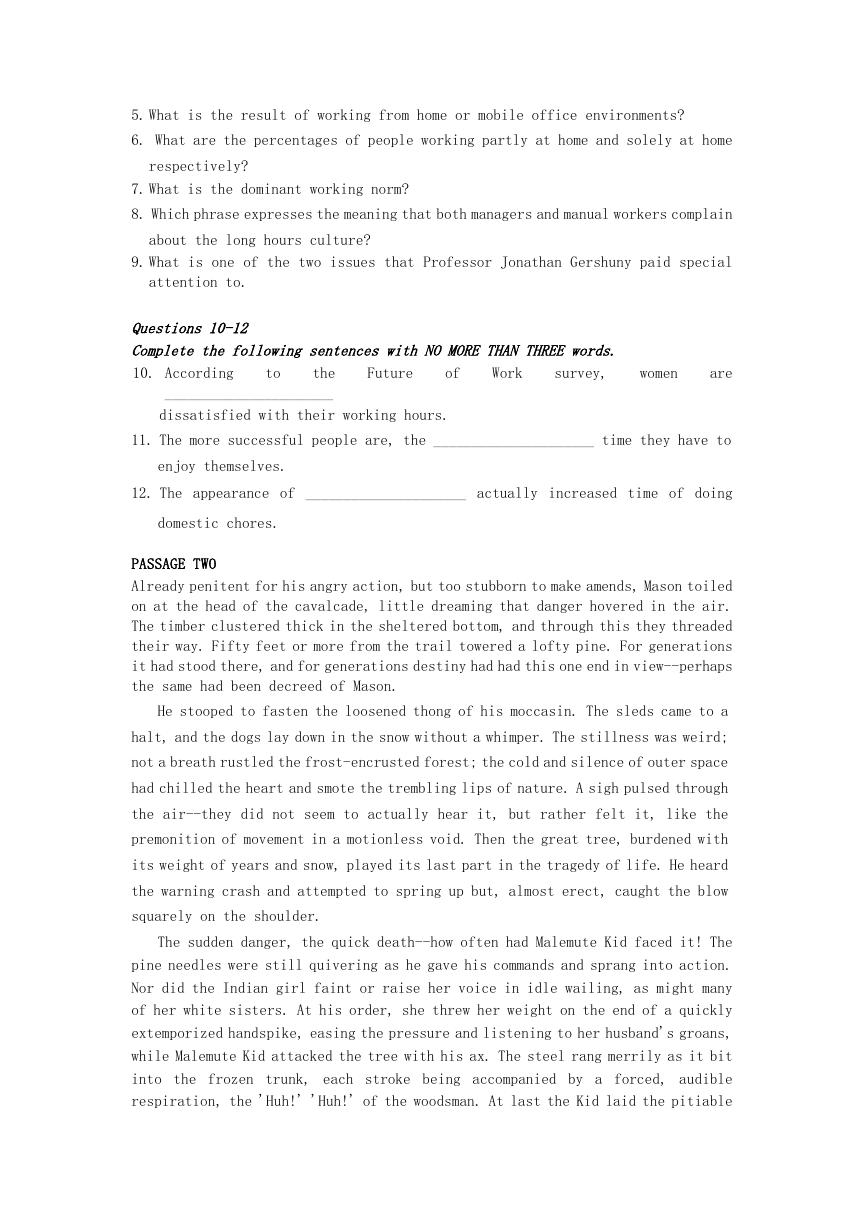








 2023年江西萍乡中考道德与法治真题及答案.doc
2023年江西萍乡中考道德与法治真题及答案.doc 2012年重庆南川中考生物真题及答案.doc
2012年重庆南川中考生物真题及答案.doc 2013年江西师范大学地理学综合及文艺理论基础考研真题.doc
2013年江西师范大学地理学综合及文艺理论基础考研真题.doc 2020年四川甘孜小升初语文真题及答案I卷.doc
2020年四川甘孜小升初语文真题及答案I卷.doc 2020年注册岩土工程师专业基础考试真题及答案.doc
2020年注册岩土工程师专业基础考试真题及答案.doc 2023-2024学年福建省厦门市九年级上学期数学月考试题及答案.doc
2023-2024学年福建省厦门市九年级上学期数学月考试题及答案.doc 2021-2022学年辽宁省沈阳市大东区九年级上学期语文期末试题及答案.doc
2021-2022学年辽宁省沈阳市大东区九年级上学期语文期末试题及答案.doc 2022-2023学年北京东城区初三第一学期物理期末试卷及答案.doc
2022-2023学年北京东城区初三第一学期物理期末试卷及答案.doc 2018上半年江西教师资格初中地理学科知识与教学能力真题及答案.doc
2018上半年江西教师资格初中地理学科知识与教学能力真题及答案.doc 2012年河北国家公务员申论考试真题及答案-省级.doc
2012年河北国家公务员申论考试真题及答案-省级.doc 2020-2021学年江苏省扬州市江都区邵樊片九年级上学期数学第一次质量检测试题及答案.doc
2020-2021学年江苏省扬州市江都区邵樊片九年级上学期数学第一次质量检测试题及答案.doc 2022下半年黑龙江教师资格证中学综合素质真题及答案.doc
2022下半年黑龙江教师资格证中学综合素质真题及答案.doc